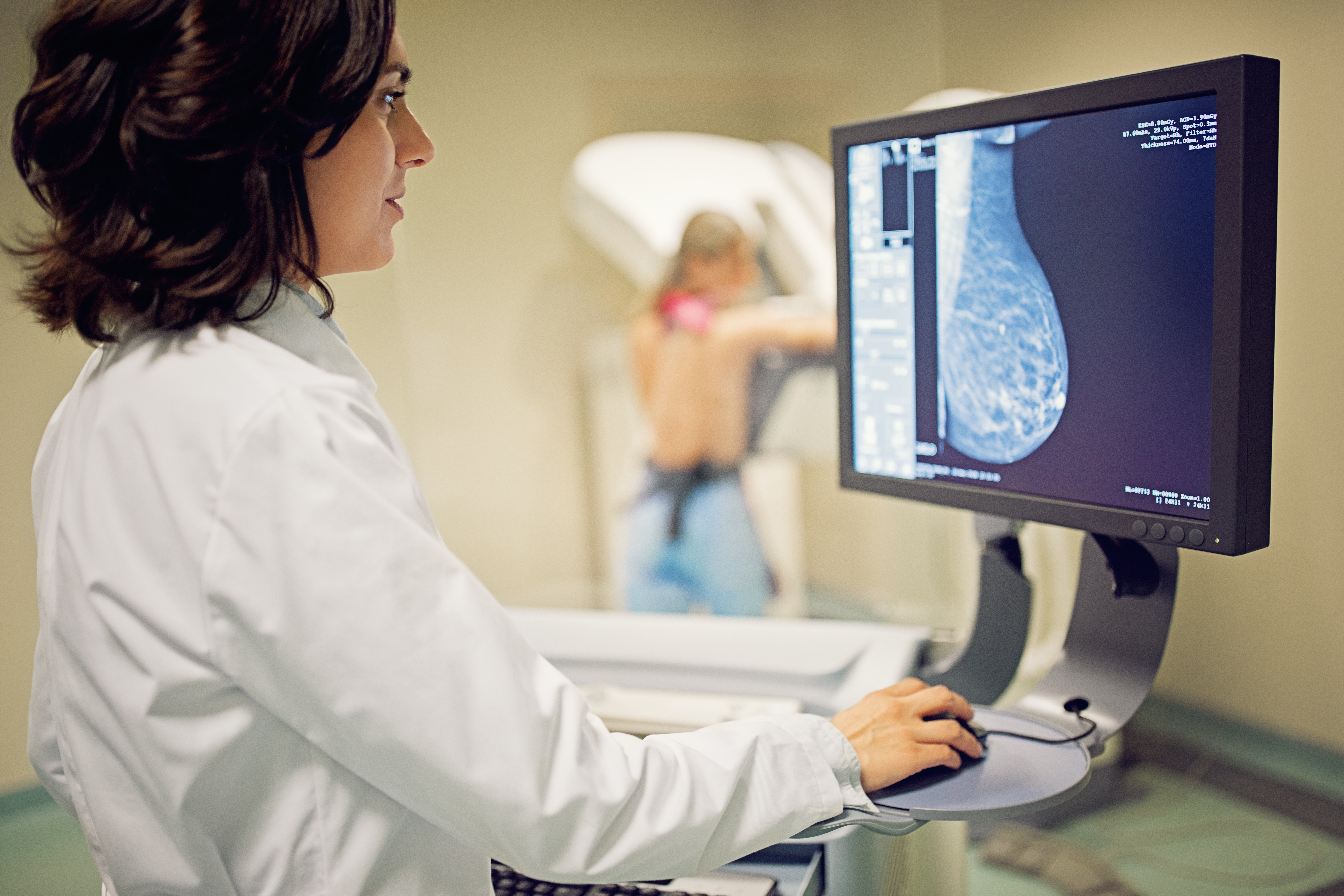From the Mummers Parade to her Inspira care team, Christina Camuccio found strength in every note of...
Read MoreEffective Monday, January 5th, Inspira Health is now at Yellow Alert Status: Masks for staff, patients and visitors in all high-risk areas across our facilities are strongly recommended.


Today, 1 in 8 women is at risk of developing breast cancer in their lifetime. While regular screenings have improved the early detection and overall prognosis of breast cancer, there is one thing that has altered the course of this disease over the past few years: increased awareness about the signs and risks.
“Breast cancer starts when cells in the breast begin to grow abnormally—typically seen (or felt) as a tumor or a lump in the breast. This cancer can originate from several parts of the breast, most commonly from the milk ducts or the milk glands in the breast,” said Nandini Kulkarni, M.D., medical director of Surgical Oncology at Inspira Medical Group. “Not all lumps are cancerous, but it is always better to be safe than sorry when it comes to speaking with your primary care physician or OB/GYN.”
Unfortunately, there is no conclusive evidence as to why breast cancer develops. Yet research shows advanced age, genetics and family history, as well as excessive alcohol consumption, obesity, limited exercise and oral contraception, are all linked to an increased prevalence of developing breast cancer.
According to the American Cancer Society, the 5-year relative survival rate of localized breast cancer, before it metastasizes, is about 99 percent. But if the cancer cells enter the bloodstream, the cancer can travel and manifest in other areas of the body, dropping the survival rate to roughly 27 percent.
Recognizing the signs and symptoms associated with breast cancer can help to find the right treatment options suited for your condition, and in some cases help prevent this disease. One of the characteristic symptoms of breast cancer is a lump within your breast tissue. However, there are several other potential symptoms you should be monitoring for.
“If you experience swelling around your breast tissue, skin dimpling, redness around your nipple or breast skin, nipple discharge or even breast or nipple pain, you should speak to your primary care physician or OB/GYN,” said Dr. Kulkarni. “But even before you begin showing symptoms, there are several preventive measures that you can take to ensure you are improving your risk profile.”
Preventing breast cancer deaths begins with having regularly scheduled screening tests. When breast cancers are found and diagnosed early—in part due to these exams—the tumors are more often smaller and more responsive to treatment. Screening includes breast self-exams, annual physician breast exams, mammograms and ultrasounds. MRI of the breast can also be used as a tool for screening in high risk patients.
In addition to getting screened, there are other lifestyle changes you can make to prevent breast cancer. Here are a few main ways to lower your risk for developing this devastating disease.
1. Maintain a healthy weight
Those suffering from obesity have been linked to an increased chance of getting breast cancer. As the amount of fat in the body increases, so do estrogen levels—ultimately increasing an individual’s predisposition to this disease. By maintaining a healthy weight, you can decrease your risk profile exponentially.
2. Exercise regularly
Maintaining an active lifestyle has been proven to lower your risk of developing breast cancer. Aside from helping maintain a healthy weight, exercise lowers blood estrogen levels and boosts the body’s immune system—helping the body fight off infection and potential cancerous cells.
3. Drink responsibly
Because alcohol can increase estrogen and hormone levels in the body, excessive alcohol consumption can cause an increased risk of breast cancer. By drinking responsibly and monitoring your alcohol intake, you can reduce your risk of this illness.
“Taking these steps to help prevent breast cancer is important,” said Dr. Kulkarni. “But it’s important to make a plan with your primary care physician or OB/GYN about when to start screenings based on your family and medical history.”
If you’re lacking insurance, you may qualify for a free breast cancer screening through the NJ Cancer and Early Education and Detection (NJCEED) program. To learn more about breast cancer and treatment options, click here.

From the Mummers Parade to her Inspira care team, Christina Camuccio found strength in every note of...
Read More
Instant ramen has become a popular go-to meal, but improper preparation can lead to burns, excessive...
Read More
Many packaged foods, including Halloween candy, contain added sugars that go by different names...
Read More